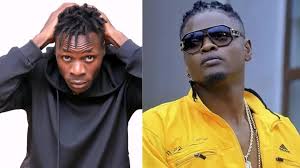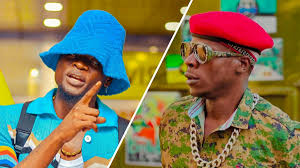| By, Haji Ahmed Kateregga Musaazi.
Tempers are high as if this is the first and last elections. We have been with many immediately after independence; and since 1996, they have been regular every five years.
Unlike 1980 controversial general elections that sparked off a five-year bush war after massive rigging by the Military Commission under the late Paulo Muwanga in favor of UPC’s Milton Obote, other elections ended peacefully though some could take disputes to courts of law.
It was only after 2011 elections that Dr. Kizza Besigye of FDC attempted to insight the population to riot against government through a walk to work style, he copied from Arab spring that saw the fall of governments of Bin Ali in Tunisia, Hassan Mubarak in Egypt, and with NATO invasion, Muammar El Qaddaffi in Libya. The walk to work failed.
There was also an attempt on People’s Redemption Army (PRA) under Col. Samson Mandy, Lt. Col Kyakabale and the late Col. Muzoora after
2001 elections, which failed in Ituri forests, as many PRA recruits were eaten up by now Gen. Kale Kayihura and Brigadier Felix Kulayije.
Another attempt, after the 2016 elections could not work. As he swore himself as President, his other people who had won parliamentary and
local government council seats were rushing to parliament, city hall, district, municipal and sub county chambers to get sworn in. The then FDC Party President appointed Winnie Kiiza Leader of Opposition and Semuju Ibrahim N’ganda Opposition Whip, Erias Lukwago was sworn in as Lord Mayor and he successfully fought and edged out the Kampala Capital City Authority iron lady Jennifer Musisi.
Although Kyagulanyi alias Bobi-Wine has lost the Presidential bid, NUP ate big in parliamentary elections especially in Buganda Region and it is likely to reap in local government council elections.
Having said that, as a nation and citizens, it is high time we revisited our electoral system. The Westminster system we inherited at independence, where a party with the majority of seats formed government was not only complicated, but denied the citizens a direct right of electing a President. Past executive prime ministers; Ben Kiwanuka in 1961 and Milton Obote in 1962 were elected by parliament other than by the people. Past presidents; Sir Edward Muteesa in 1963 and Milton Obote in 1980 were elected by parliament.
Worse still after the 1966 crisis abolished kingdoms and federal states, the climax being 1967 republican and unitary constitution, even citizens were denied of electing local government leaders.
District councilors were appointed by the Minister for Local Government, every President came with his own mayors. Amin had Walusimbi Mpanga, for example. That was the status quo until NRM introduced the Resistance Council/ Committee system in 1986 that saw the election of Waswa Ziritwawula and Fred Yiga, who were both DP but later switched to NRM. Then after promulgation of the 1995 constitution, there was direct election of local government leaders including the controversial Al Haji Nasser Ntege Ssebaggala as Kampala Mayor in 1998.
In 1980, UPM under President Yoweri Museveni promised to form a broad-based government if it won elections. Paul Ssemogerere of DP was
for a proportional representation. After NRM/NRA victory in 1986, NRM/NRA successfully experimented with broad-based governance which
gave birth to an all embracing and all-inclusive Movement system under which 1996 and 2001 elections were held.
Now that we turned to a multi-party system, it is high time we remembered some elements of proportional representation including a proposal by the then C.A. Delegate now High Court Judge Masalu.
Museveni’s proposal for all presidential candidates to be automatically MPs was rejected, the Compact’s proposal by political parties and civil society which advocated for a first runners-up in presidential elections to automatically become Leader of Opposition in Parliament, or the recent proposal by the Leader of Opposition in Parliament Betty Awol Achan, where presidential candidates with not less than 10 percent of the votes, to be ex officio MPs.
Even, Inter Party Organisation for Dialogue (IPOD) which covers parties that are represented in parliament submitted almost the same, when they, among others, called for the first presidential runners-up to become automatic Leader of Opposition in Parliament, among other reforms.
I am of the view that even party presidents that are represented in parliament, should automatically be specially elected MPs. In that, we shall do away with winner takes all, and that will restore the spirit of popular participation and inclusiveness NRM came with from the bush.
These should not be remote dreams but ideas the outgoing parliament should handle, as one of the ways of handling discontent among our citizens regardless of political views and opinion.
Haji Ahmed Kateregga Musaazi is a Veteran Journalist.














































Discussion about this post